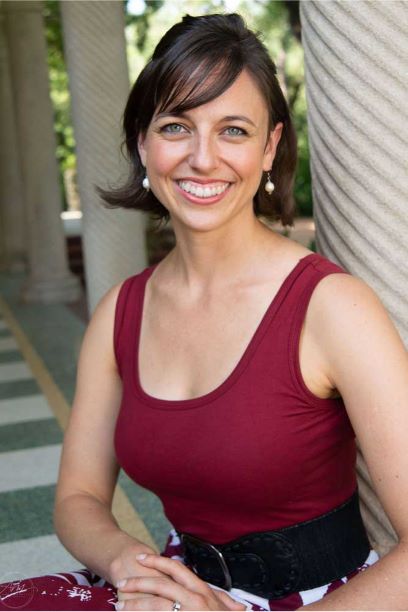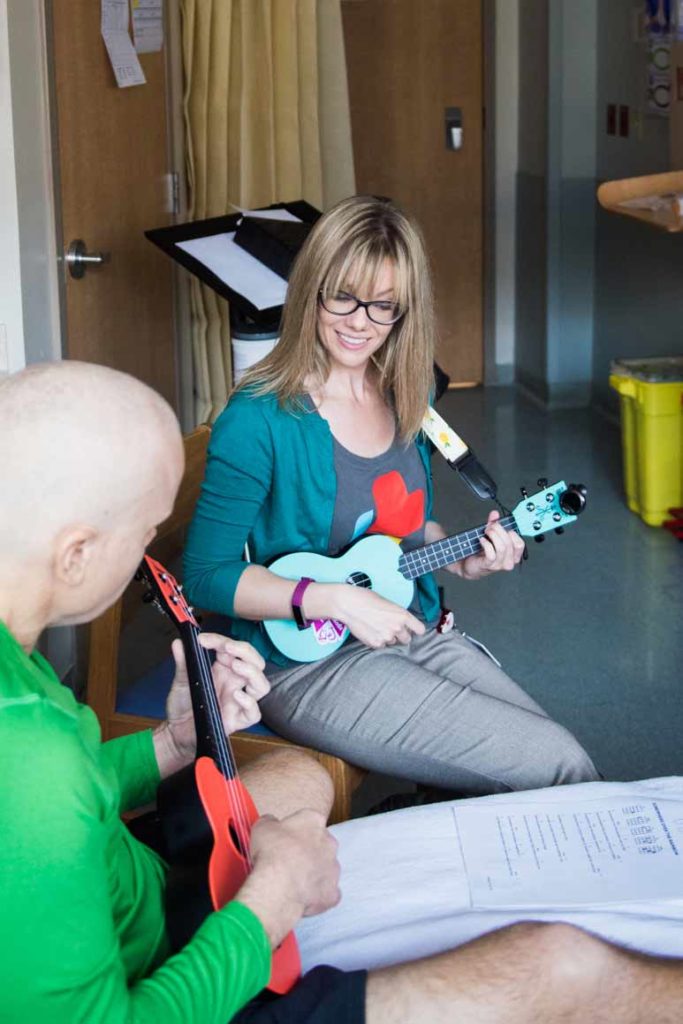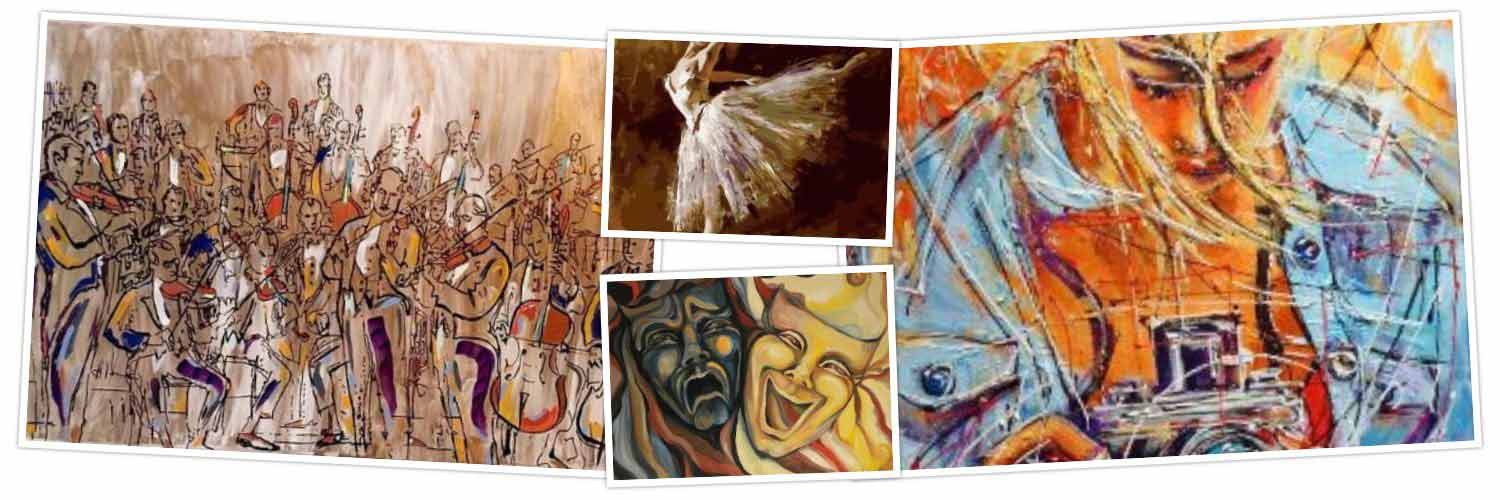ART HELPS THE BROKENHEARTED
By JASMINA WELLINGHOFF, Editor
When she was only 13 years old, Constanza Roeder, was diagnosed with leukemia. That devastating blow was followed by two-and-a-half years of chemotherapy at the children’s hospital in Santa Cruz, California, which was painful but ultimately successful. Now a San Antonio resident, the vivacious young woman is the founder and CEO of Hearts Need Art, a nonprofit that provides opportunities for cancer and other seriously ill patients to interact and experience “moments of joy” by engaging with the arts.

The idea has roots in her own experience. “In my hometown, there was an organization that offered opportunities for teens and young adults who had cancer to come together and engage in the arts – visual art, movement, music, whatever we wanted. That became the first place that I felt was safe enough for me to share my story and my emotions,” she recalled recently during an interview with ARTS ALIVE SAN ANTONIO.
Having grown up in a musical family, her art was – and still is – primarily music and singing, and she remembers that the young patients would often sing to each other when they felt discouraged. Attracted by the songs, other patients would trudge down the hall, dragging their IVs to see what was going on. “We did that spontaneously by ourselves but we also benefitted from that organization that I just mentioned that encouraged creativity and expressing yourself through the arts,” she noted. “That was a really profound experience for me.”
She went on to study music in college, marry and move to San Antonio with her husband who was in the Navy. And not surprisingly, she felt the need to support the cancer community here, starting with volunteering at the Methodist Hospital oncology unit, doing various little things that needed to be done. One day, the social worker at the hospital found out that she was a singer, and frantically urged her to go sing to one of the patients. “So, I did, and… it was magical,” said Roeder. She recalls another patient who was completely non-verbal, but responded to a familiar song and even joined Roeder in singing it. After a while, Roeder was called on to calm a variety of disturbed cancer patients. “You could see the physical shifts that happened with these individuals. The arts have this ability to transform us, to reach our hearts and spirits in a special way,” she observed.
And the patients wanted more, not just music.
So, in 2016, Hearts Need Arts was born and today it’s a thriving organization, involving a number of artists who engage with patients – and their caregivers – through poetry, visual art, music and story-telling.

One of these artists is musician Izzy Anderson who brings an ukulele with her when she visits the sick, and not only plays for them, but also teaches them to play themselves. “It’s always fun. We usually start with “Somewhere Over the Rainbow.” Then I ask them what’s the song they would like to learn next week. I can bring the music for them and I leave the ukulele with them, too, so they can practice that song or learn a different one, and they really enjoy that experience. The ukulele is a relatively easy instrument to pick up. By the end of the first session they can play ”Somewhere Over the Rainbow” while I am singing.”
Before COVID, Anderson visited several patients each week but during the pandemic, visits became virtual. Today, she can go to the hospital only once a month.
Though she has been involved in this work/ministry since 2018, she experienced a personally poignant couple of weeks at the start of 2020 when her beloved grandmother was diagnosed with cancer. Since grandma lived far away, Izzy sang songs and played the piano for her over the phone. “It was really special,” said Anderson.

Board member Cyndi Roberts, the owner of the window covering company, Blinded by Delight, experienced something similar when a dear friend of hers was ill and eventually died. Throughout her illness, the friend talked about how much the arts and HNA had helped her cope during her illness. Roberts called the organization to offer a donation in her friend’s name but ended up deeply impressed by their “ministry” and became a board member. “I just want to make people aware of their amazing work,” said Roberts.
In addition to Anderson, there are currently seven other artists in the program, including several other musicians, a storyteller, a writer and a visual artist. All are paid for their work and undergo appropriate training. There is no cost for patients, their families or their professional caregivers who also receive free “moments of joy” here and there to help them relax a bit during long hours at work. According to numbers published on HNA’s website, 2,100 patients and more than 4,000 family members are provided “art accessibility” annually, and the majority report an improvement in mood, a lessening of pain and of a sense of isolation.
“Research shows that what people undergoing traumatic experience need is to be seen and heard, and cared for by other people. Art gives us a way to do this,” said Roeder. It’s revelatory by nature. It allows people to share their hearts.”
Roeder also emphasized that both family caregivers and medical personnel experience high levels of stress, too, especially during this past year, and the latter often do not have the time to sit down an enjoy a 30-minute concert. For them, HNA designs special quick fun activities in the staff lounge to make them forget the stress for a few minutes.
She feels that a program like the one she created should be part of every hospital in the nation. In fact, some do have similar services but most are focusing on pediatric patients, while HNA patients are mostly adults, 70 % of whom are likely to eventually die from their disease. She says, in Great Britain, the national health system may soon pay for people to take an art class or take part in a dance workshop. The impact of the arts on health is recognized over there. HNA is a member of the National Organization for Arts in Health. For her extraordinary efforts, Roeder received the 2018 Graceann Durr Humanitarian Award.
So, what does she enjoy the most about her work?
“I love so much of It! I love to hear from an artist who has just had an amazing session with a patient. And what they say most is ‘This is why we have music; this is why we have art.’ God is near the brokenhearted,” she continues. “I get to see the face of God when I am with the brokenhearted.”
——————————————————————————————————————————
To learn more, volunteer or get involved go to https://heartsneedart.org
